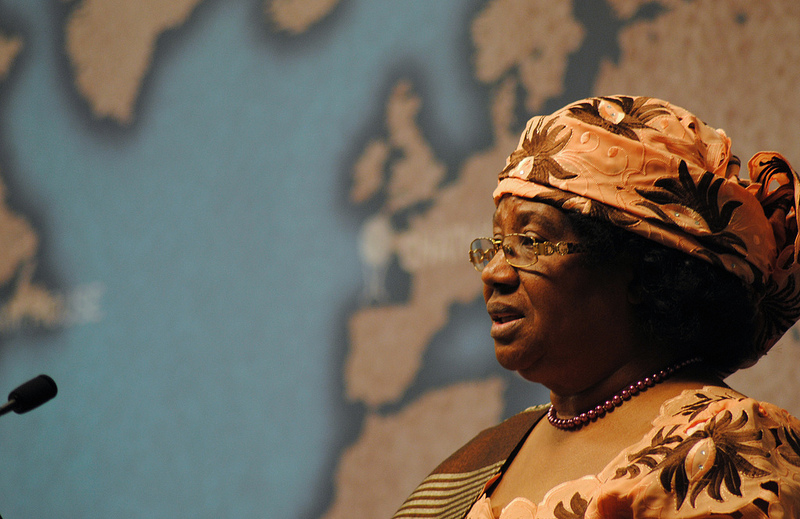By Rachel Wood
Three gunshot wounds helped launch the discovery of a massive corruption scandal in Malawi that has shocked this small landlocked country in southern Africa.
While the news of corruption has led to government upheaval and suspended foreign aid, it may have no effect on tourism. Lonely Planet, the travelers’ Bible, recently named Malawi one of the best places to visit in 2014. Come for the elephants, stay for the politics.
In a country where most people live on less than $2 a day, Malawi’s Anti-Corruption Bureau in September discovered a substantial amount of money stored in the trunk of a government official’s car and more hidden at the home of an accountant for the president’s office. Days later, Malawi’s Budget Director and known corruption-hawk Paul Mphwiyo was driving into his gated property when he was shot three times. Mphwiyo survived, but was ambushed by people suspected of trying to silence his whistle blowing, leading to accusations of government corruption that have spilled out beyond the capital city of Lilongwe.
The revelation of looting is now chipping away at the hard-fought stability that has served as a source of pride for President Joyce Banda, the country’s first female leader and an internationally praised head of state.
The scandal has proven to be much larger than an isolated incident. Estimates indicate that 35 percent of government funds may have vanished over the last decade as a result of what has now been dubbed “Cashgate.” The United Kingdom, Norway, and the European Union suspended direct foreign aid, freezing a portion of the funds that Malawi relies on to make up 40 percent of its budget. The United States signaled that it does not intend to curtail foreign aid, which it channels through non-governmental organizations.
President Banda remains steadfast in her effort to rid her government of corruption, saying she is “not going to cry” over the $150 million worth of withdrawn foreign support. Nor will she limit efforts to clamp down on corruption for fear of losing votes in elections scheduled for May.
Her insistence means that this small African country of 15 million people is now home to a startling number of government officials detained under allegations of corruption.
A total of 68 arrests have been made, including a former justice minister and several senior officials from the Ministry of Tourism, which served as a funnel for much of the looted funds.
Amid the country’s fraud, violence, arrests, and made-for-TV drama, the Tourism Ministry enjoyed a bit of unexpected praise in November when Lonely Planet crowned Malawi a top ten country to visit in 2014, awarding it fifth place sandwiched between Sweden (#4) and Mexico (#6).
A seal of traveler approval will likely help its image, but Malawi has already seen its tourism sector grow over the past decade, with the number of travelers rising annually by about 12 percent over the past decade. Although the tourism sector makes up nearly 10 percent of Malawi’s GDP, it is three-times smaller than the agriculture industry and continues to be eclipsed by cash-crop exports such as tobacco, tea, coffee, sugar, and cotton.
President Banda hopes to see the country weaned off foreign aid in the next 10 years, and with tourism frequently viewed as a booster of economic sustainability, it has appeared in the Malawi Growth and Development Strategy as a key short-term driver for economic growth.
It is not uncommon for foreign aid to be directed to projects that directly benefit the tourism sector. From 2010 to 2011, Malawi received $33 million in disbursed aid for tourism, wildlife, and culture, including World Bank funding for the development of the country’s second largest game reserve, Nkhotakota Wildlife Reserve.
While aid is suspended for Malawian non-humanitarian budget support, tourism dollars could become more crucial to the country’s economy. But could the stories of corruption ward off travelers? Studies have shown that less corruption improves tourism competitiveness within a country, indicating that corruption can negatively impact a tourism sector.
While attracting Teva-strapped feet to a country may serve as a vote of confidence for that nation, supporting a government is not often a top concern of travelers. But when Britain indicates that it is wrong to pour money into a country that siphons funds from its poorest recipients, savvy travelers may revise their routes.
In the next month, Malawi should know the results of an audit-team investigation into the scandal. Regardless of findings, this nation of rainforests, fishing villages, mountainous hiking, and dusty hippos appears eager to clamp down on government corruption and turn back on the spigot of aid, as well as international acclaim.
Rachel Wood is a McCourt School Master of Public Policy student. Prior to attending Georgetown, she worked on U.S. aid and trade policy reforms to benefit emerging markets for the Initiative for Global Development and managed executive operations for the microfinance organization Unitus. Most recently she coordinated consumer marketing for the city of San Francisco. She earned her BA from the Jackson School of International Studies at the University of Washington in Seattle and now owns more raincoats than reasonably necessary.

That’s a very uninformed comment. For starters, the guy who was shot wasn’t fighting corruption at all. This was simply a claim the president made. The president claimed she knew exactly who shot the guy and why. She has since disavowed those claims. If you want to find out what Malawians really think about the president, please read the following opinion piece from one of Malawi’s few respected papers: http://mwnation.com/curse-malawi-presidency/#comment-77574